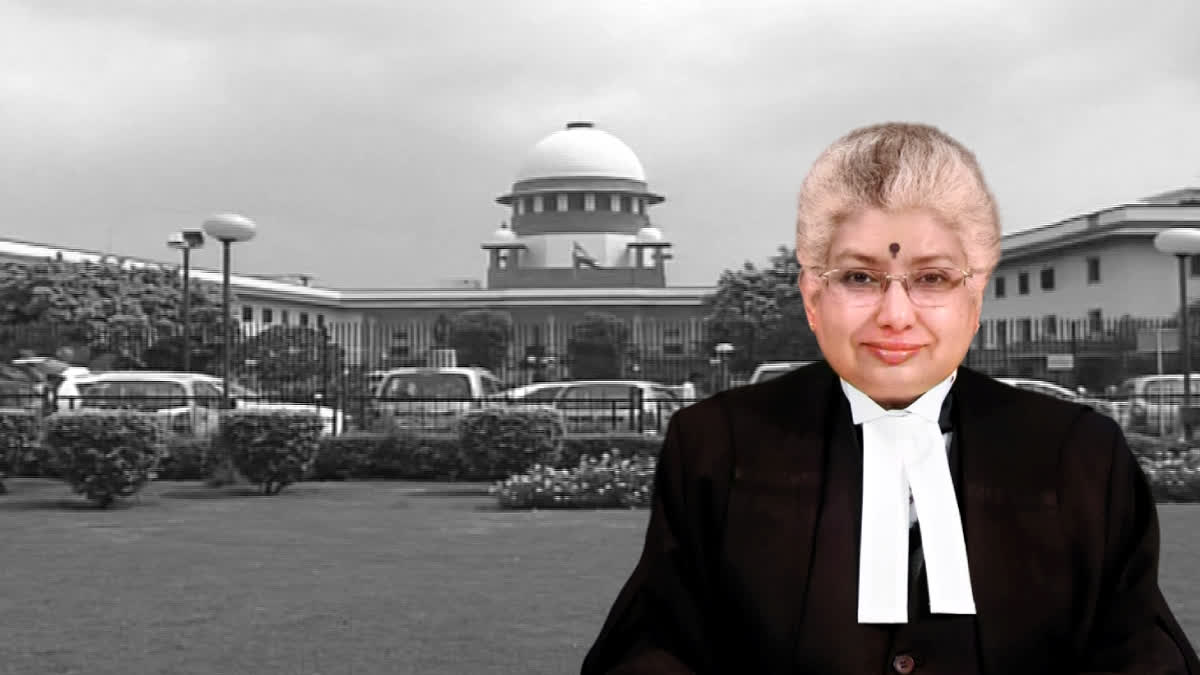New Delhi:In an era where women are taking significant strides across various domains, it's noteworthy that the Indian judiciary still grapples with a notable gender gap. Currently, among the 34 Supreme Court judges only three are women judges, highlighting a disparity that warrants attention.
In a democratic nation like India where diversity is the hallmark of effective institutions and the inclusion of women is one of the crucial elements, participation of women in the judiciary should be a must. However, there is optimism on the horizon, with the prospect of Justice B V Nagarathna becoming the first female Chief Justice of India in 2027. She was elevated as a judge of the Supreme Court on August 31, 2021.
She would be serving as the first woman CJI after September 23, 2027. We can see it as a moment of joy and women empowerment in the judiciary but it won't last long for B V Nagarathna as she will have a tenure as Supreme Court judge till October 29, 2027. Thus, she may have a tenure of only over one month as the first woman Chief Justice of India.
In October last year, the Chief Justice of India D Y Chandrachud had said as gender equality is taking firm roots in district courts “I am sure a similar representation of women would be witnessed among constitutional courts in a decade or two”. This Women’s Day, is a reminder for the government and judiciary to give more attention to the underrepresentation of women in the higher judiciary.
According to the United Nations, women’s representation in the judiciary is key to ensuring that courts represent their citizens, address their concerns and hand down sound judgments. By their mere presence, women judges enhance the legitimacy of courts, sending a powerful signal that they are open and accessible to those who seek recourse to justice.
During an event in September 2021, which was also attended by then Chief Justice of India N V Ramana, Justice Nagarathna had said, “it is time to break the glass ceiling and time for women to strive ahead.” In December last year, Justice Nagarathna, in an interaction with a TV channel, had said that more women are coming forward to take up roles in the country's judiciary, once a male-dominated space.
On January 8, the Supreme Court bench led by Justice Nagarathna delivered a landmark ruling in the harrowing case of Bilkis Bano. The apex court quashed the remission granted to the 11 convicts by the Gujarat government in the case, on the basis that the state government had “no jurisdiction” to have done so. Justice Nagarathna, in a scathing criticism of the state government, observed that the Gujarat government was "complicit" and "acted in tandem" with the convicts in misleading the court by suppressing the facts.
